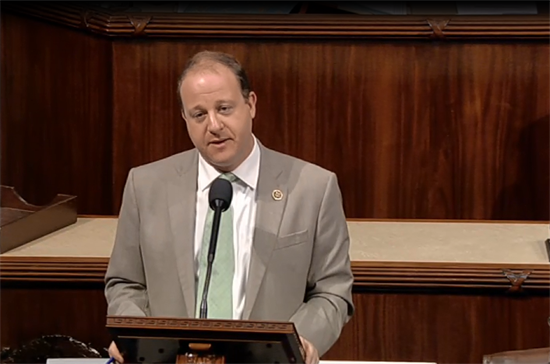
Blockchain Just Made Some New Friends in Congress
By Jeff John Roberts for Fortune
Meet the Blockchain Caucus.
Boy, has blockchain become respectable. It wasn’t long ago that the face of the technology, which powers the crypto-currency bitcoin, was libertarians and drug dealers. Today, it’s the banking industry and members of Congress.
On Monday, Rep. Jared Polis (D-Co) and Rep. Mick Mulvaney (R-SC) announced the creation of a “Blockchain Caucus” to promote laws and policies to encourage the development of crypto-currencies and other blockchain-related tools.
“Blockchain technology has the potential to revolutionize the financial services industry, the U.S. economy, and the delivery of government services,” said Mulvaney in a statement, encouraging other members of Congress to join the caucus.
Hype over blockchain has been bubbling for years because it offers a new form of digital record-keeping in which networks of computers verify and store transactions. Banks and companies like Accenture ACN 0.57% and IBM IBM -0.65% are already deploying it to replace slow and expensive third-party ledgers systems.
Get Data Sheet, Fortune’s technology newsletter.
But it still faces obstacles to development in the U.S. due to thickets of regulation.
“We’re falling behind places like the U.K and Singapore,” said Peter Van Valkenburgh, a research director at the blockchain advocacy group Coin Center. “The problem is the divided structure of US regulation, where you have dozens of state and federal bodies, contrast with the UK, where you have Her Majesty’s Treasury and one agency.”
Van Valkenburgh hopes the new blockchain caucus will lead to the creation of a national charter that would make it easier for crypto-currency companies likeRipple or Ethereum to operate. Another priority is a “safe harbor” that would ensure blockchain companies that don’t hold customers’ digital currency (like miners and accessory makers, for instance) won’t get snared in banking regulations.
Here’s Why Banks Need to Jump on Board With Blockchain
It’s important to note that not all blockchain services are tied to a currency. But many are, so a clearer regulatory landscape could be a big help.
As for the blockchain caucus, it’s too soon to say what, if anything, it might accomplish. As Quartz notes, there is a caucus in Congress for just about everything, so Polis and Mulvaney might have a hard time getting their colleagues to pay attention. On the other hand, blockchain is a hot topic in tech and finance circles so some lawmakers are likely to at least give the caucus a look.
Finally, Monday’s announcement is also a coup of sorts for Coin Center. The group emerged as a successor of sorts to the troubled Bitcoin Foundation, which sought to speak for the crypto-currency community but—true to the technology’s renegade early days—saw several of its high profile members end up in exile or prison.
First appeared at Fortune





